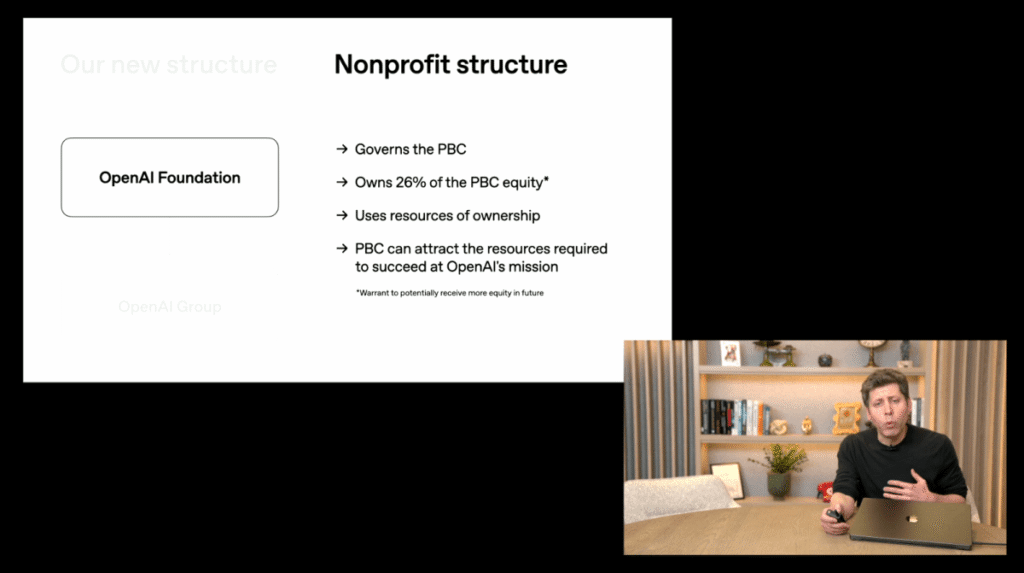OpenAI says its deep learning systems are rapidly advancing, with more models able to solve complex tasks faster. So fast, in fact, that OpenAI internally aims to have intern-level research assistants by September 2026 and fully automated “regular AI researchers” by 2028, CEO Sam Altman said in a livestream on Tuesday.
This ambitious timeline was announced on the same day that OpenAI shed its nonprofit roots and completed its transition to a public benefit corporation structure. This reorganization frees OpenAI from the limitations of its nonprofit charter while also opening up new opportunities for raising capital.
Jakub Pachocki, Principal Scientist at OpenAI, joined Altman’s livestream. He says these AI researchers should not be confused with humans who study AI. He described it as “a system that can autonomously execute large-scale research projects.”
“We think it could be less than a decade before deep learning systems become superintelligent,” Paciocchi added. He described superintelligence as a system that is smarter than humans across a number of important actions.
To achieve these goals, OpenAI is betting on two key strategies. It’s about continued algorithmic innovation and a significant scale-up of the “test time calculation,” which is essentially the time the model spends thinking about the problem. Paciocchi said the current model can complete the task in a roughly five-hour time frame, matching top human performance in competitions such as the International Mathematics Olympiad. But he believes the field will expand rapidly as models will be able to devote far more computational resources to considering complex problems. For major scientific advances, he said, it’s worth dedicating an entire data center’s worth of computing power to a single problem.
OpenAI said these goals are in line with its overall push to advance scientific research and show that AI has the potential to make discoveries faster than human researchers, tackle complex problems beyond current human capabilities, and dramatically speed up innovation across multiple fields, including medicine, physics, and technology development.
Altman also said the reorganization creates a framework that supports OpenAI’s aggressive schedule for AI research assistants while maintaining its commitment to responsible AI development. Under the new organization, the nonprofit OpenAI Foundation, which focuses on scientific advancement, will own 26% of the for-profit entity and control the direction of its research. The nonprofit has also pledged $25 billion to use AI to treat disease and will help manage AI research and safety efforts.
tech crunch event
san francisco
|
October 27-29, 2025
Altman said the for-profit sector’s ability to raise more money means it can expand the infrastructure needed to achieve scientific advances. Altman said OpenAI is committed to building 30 gigawatts of infrastructure over the next few years, representing a financial commitment of $1.4 trillion.

